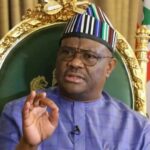
Some health experts have said that the only way to overcome the health challenges in Nigeria is for the rich and the poor to have access to the same health care system through the National Health Insurance Bill.
The Managing Director, Ultimate Health, Lekan Ewenla, who stataed this said to curb the issue of self-medication, spiritualising of health challenges due to poverty, the country needs to adopt a scheme where both the rich and the poor come under one umbrella.
Ewenla at the press briefing after the Company’s Annual General Meeting in Abuja said that the inflation in the country has affected every sector.
Health practitioners must look for a way to deal with inflation without people’s health being on the line.
He said, “The inflation being experienced in the country is not peculiar to the health care sector. It cuts across all strata of society. We are also going through a challenge. The way out is to encourage all the HMOs driving the private health insurance programme to key into the larger poll knowing fully well that health insurance cannot survive on a fragmented poll of the NHIS.
“The scheme recommended a minimum of 2,500 enrollees per facility, but if a facility has less than the recommended 2,500, they will be operating at a loss. Enrollees in some facilities are not treated well because the primary provider that is the risk-taker does not have the recommended volume. For this scheme to work, we need to look at the responsibility of the risk-takers, the primary provider, and the HMOs. Health insurance deals with risk pooling, and risk management deals with volume.
“To address these challenges, we need to put in place mandatory health insurance to have one nation, one health. The newly envisaged health insurance will be nationally controlled and locally driven. States will be the ones to drive the insurance programme with harmonised benefit packages. Compulsory health insurance and health under one roof is the way to go, making all the states across the country have a uniform product.”
Earlier, the outgoing chairman of the board, Mr. Dahiru Muhammed, also stated that change was not easy to accept, adding that this had played out in the reception of Nigerians towards the health insurance scheme since 2005 when former President Olusegun Obasanjo introduced the legislation.
He said, “The progress of Nigerians towards accepting health insurance is very slow; most people believe that the government should provide health services rather than the private sector. I must give credit to former President Olusegun Obasanjo, who took the initiative to introduce the health reform which gave birth to the health insurance scheme.
“Nigerians have been very slow in understanding and accepting the insurance scheme. We are at a learning curve. And I believe that we have turned around because the state, local, and the people have now accepted the concept of health insurance to an extent.”
Regarding the health insurance bill and its implementation, Muhammed said, “It will work, but it would be a herculean task because if we force it, how do we ensure the implementation? It can work for structured workers like civil servants and the organised private sector, but when you go to the rural areas, how do you enforce it?
“There would be a need for a lot of education, publicity, persuasion, and cajoling to enlist people into the scheme. The best way to go through it is to go through the local government.
“Health would need to remain on the concurrent list; while we were growing up, the Federal government was hardly ever involved in health issues except at the Teaching hospital; it was basically a regional and local government affair.
“The Federal government should shelve some of these health responsibilities. The legislation should be with the Federal Government, but the enforcement should be done at the state and local government levels.”
The organisation also announced the appointment of three new members to its Board of Directors to support in driving the vision of the Organisation.
A Medical Director of Valentine Hospitals in Port-Harcourt, Dr. M. S.D. Bob-Manuel, was appointed as a Non-Executive; a former Permanent Secretary of the Federal Ministry of Health, Abdulaziz Abdullahi; former Managing Director in NEM Insurance, Mrs. Susan Abisola Giwa-Osagie, appointed as an Independent Non-Executive Director.
Copyright PUNCH.
All rights reserved. This material, and other digital content on this website, may not be reproduced, published, broadcast, rewritten or redistributed in whole or in part without prior express written permission from PUNCH.
Contact: [email protected]




